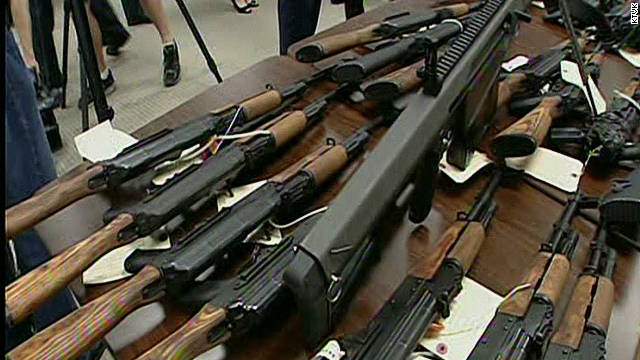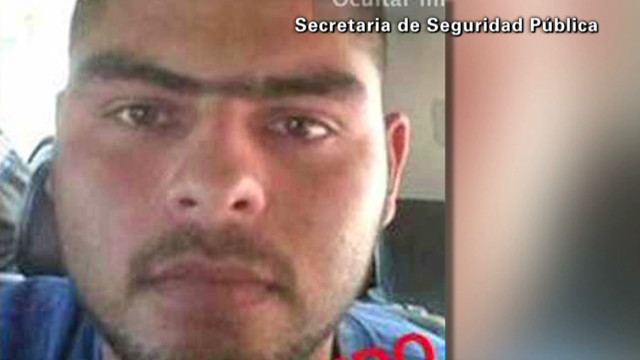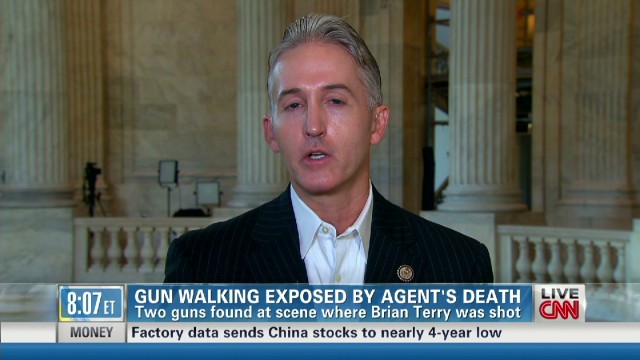The long-awaited report on the controversial gun-trafficking operation known as Fast and Furious was issued by the Justice Department inspector general Wednesday. This question-and-answer looks at various aspects of the case and its controversies.
What was 'Fast and Furious'?
The Bureau of Alcohol, Tobacco, Firearms and Explosives -- in cooperation with legal gun dealers -- traced weapons of low-level buyers, who they believed were acquiring them illegally for Mexican drug cartels.
Nearly 2,000 firearms from the program went missing, some turning up at killing scenes in Mexico -- and at the site of a December 2010 gunbattle in Arizona that left U.S. Border Patrol agent Brian A. Terry dead.
The program has been blamed for contributing to crimes including Terry's death, and became a partisan bone of contention with the November elections approaching.
What went wrong?
The report released Wednesday by the Justice Department's inspector general focused blame on ATF headquarters, the agency's Phoenix, Arizona, field office, and the U.S. attorney's office in Arizona. The report cited "a series of misguided strategies, tactics, errors in judgment, and management failures that permeated ATF headquarters and the Phoenix Field Division, as well as the U.S. Attorney's Office for the District of Arizona."
Before the release of the report, ATF officials in Arizona said they were following guidelines from ATF headquarters in Washington.
Did ATF intentionally let guns 'walk' to cartels?
Terry's tragic death put the public spotlight on Fast and Furious, and allegations surfaced that ATF officials intentionally did not intercept guns bought by straw buyers before they got into the hands of drug cartels -- as a tactic intended to lead to bigger fish by following the guns. Critics have said the alleged practice allowed guns to slip into the hands of the U.S. border agent's killers.
In an interview with Fortune magazine published by CNN Money, agents have denied the existence of such a method.
"Just the opposite: They say they seized weapons whenever they could but were hamstrung by prosecutors and weak laws, which stymied them at every turn," Fortune wrote.
How did Washington politics get involved?
Republicans have used the issue to attack Attorney General Eric Holder and the Obama Justice Department, which Holder oversees and which is in charge of the ATF.
Congressional investigators issued a subpoena for documents from Holder relating to Operation Fast and Furious, and President Barack Obama asserted executive privilege over the documents.
The Republican-led House of Representatives, along with a handful of Democrats, voted to cite Holder for contempt. The vote along party lines was followed by the House taking the contempt issue to court, where it is expected to linger until well after the presidential election.
The report released Wednesday found that Holder was not informed of the controversial ATF operation until 2011, after Terry's death ratcheted up the political ramifications of the program.
What is the fallout from Fast and Furious?
The report Wednesday found a total of 14 employees of ATF and the Justice Department responsible for management failures in the botched operation. The inspector general referred the 14 for possible disciplinary action, but did not recommend criminal sanctions.
The Justice Department announced the departure of two employees who were faulted in the report:
-- Jason Weinstein, deputy assistant attorney general in the criminal division, resigned. The report said he failed to pass along key information about the flawed tactics being used in Fast and Furious.
--Former acting ATF Director Ken Melson, who had already stepped down from that role but was still working for the department in another capacity, has retired, the deparment said.
The acting head of ATF, B. Todd Jones, said in a statement that his agency accepted the report's findings and that ATF would determine what disciplinary action may by handed down.
On the political front, Rep. Darrell Issa, R-California, a leading critic of the administration on this issue, called on President Barack Obama to "step up and provide accountability" for the program. Holder "has clearly known about these unacceptable failures, yet has failed to take appropriate action for over a year and a half," Issa added.
Holder, meanwhile, said the report found the opposite: that the leadership did not know or authorize the tactics.









